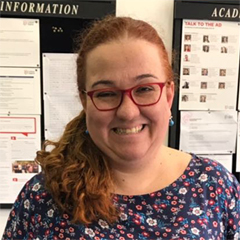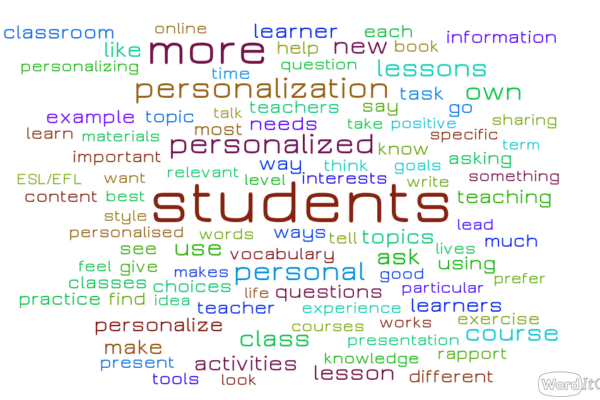Memory is the residue of thought, but what does that mean for teachers?
If learning is personalized and engaging, it is likely to stick. If your students have fun during your classes, that’s more likely to bring about emotions that should aid the process of learning. Also, learning doesn’t happen in a vacuum; it is built upon previous knowledge. We also know how powerful stories are when it comes to learning. All of the sentences above are true and are validated by current research. If we agree that this much is true, then we can proceed to some of the underlying problems these generalizations might cause and how easy it is for us to be tricked into doing things which aren’t as effective as they might seem at first glance no matter how well intentioned you may be nor how intuitive they may sound.
Personalization and engagement seem to walk hand in hand. If a certain topic is made relevant to me, chances are I’ll be engaged. However, I believe we can easily recall situations in which we were in lectures, or watching movies, or even having in a conversation about topics which interest us, but we were definitely not engaged. Conversely, it is also possible to recall situations in which you were engaged in a conversation about a topic that you wouldn’t believe you’d be so interested in to begin with. You see, it is not just the topic per se that ought to set the learning machine in motion. It is something else that triggers learning. Even though it is easier to engage students if the topic is “personalized”, we also must be realistic: more often than not, when you teach a group, topics that appeal to one student are probably not going to appeal to many others. The point is that content is hardly the decisive factor if you want to maintain interest and engagement.
Emotions are also important for learning. We can all easily recall a wedding or a birthday party that made us cry, and we believe that we remember them vividly. However, the truth is we remember a much smaller part of these events compared to what we’ve forgotten about them. While emotions are beneficial to learning, we easily overlook how much we have been able to learn in settings in which we felt absolutely nothing about the content that was learned. I doubt each and every one of your mathematics classes in school were filled with emotion and laughter. And yet, you did learn. So don’t feel bad if you don’t make your students cry their eyes out every lesson, or even if a student says that a lesson was boring. There might have been a lot of learning there as well. Come to terms with the fact that you’re in the teaching and learning business, not in the entertainment industry.
We also must acknowledge that in order for learning to take place, we need to build it upon what was previously there. This means that recycling is probably one of the most effective practices you can adopt in your lessons if you expect your learners to remember new points from today’s lesson. However, teachers are so pressed for time that they end up failing to properly recycle previously learned items and then build upon them because the schedule is too tight – they can only hope students will make the connections themselves. Guess what? More often than not, students fail to do so. Another point to think about is when we are so worried about how we are going to introduce the topic in a fun way – what game we’ll be playing in class with our students, what song to use, what video snippet to use – that we fail to do the most basic thing that would actually help them learn better: getting them to consciously think about the learning that is to take place.
You see, this is the key: getting your students to think about the meaning of what you want them to learn. It’s not just thinking about the topic, but thinking about the meaning. Memory is closely linked to learning, and memory is the residue of thought. It is very easy for us to get students to focus on something else, to think about something else and then fail to see why they haven’t mastered the subject. For instance, we may get students to play a game in order to learn something, which is good. However, if we are not careful in the planning of such game, students might end up thinking about the game more than about the point they are supposed to learn. The memory that is being created there is a memory of the game, and this is what they’ll recall. At other moments, we ask students to come up with a presentation and get them to focus so hard on building a PowerPoint, preparing props, thinking about the clothes they’re going to wear and how they’ll say something that students spend 5% of the time thinking about the content they are supposed to learn and 95% of the time thinking about how they’ll deliver it. And memory is the residue of thought. Get your students to focus on one certain aspect, and this is what will be left at the end of the day.

The stepping stones towards building a long-lasting learning experience
If we really want to make learning stick, we ought to care less about the pyrotechnics of learning and accept that learning is effortful. Accept and teach our students that learning can be engaging by itself. We need to be aware of the importance of taking one step at a time, and also making sure we are ready to progress to the next step. Teaching is not a popularity contest, nor should it be. If we want our lessons to be more effective, we have to start considering what our learners will carry with them from our lessons. And if we care that much about their learning, they’ll surely bond, we are likely to build rapport, and all of this will lubricate learning. But to do that, we need set our priorities straight. Do you want your students to learn? Get them to focus on the meaning of what they are to learn.






